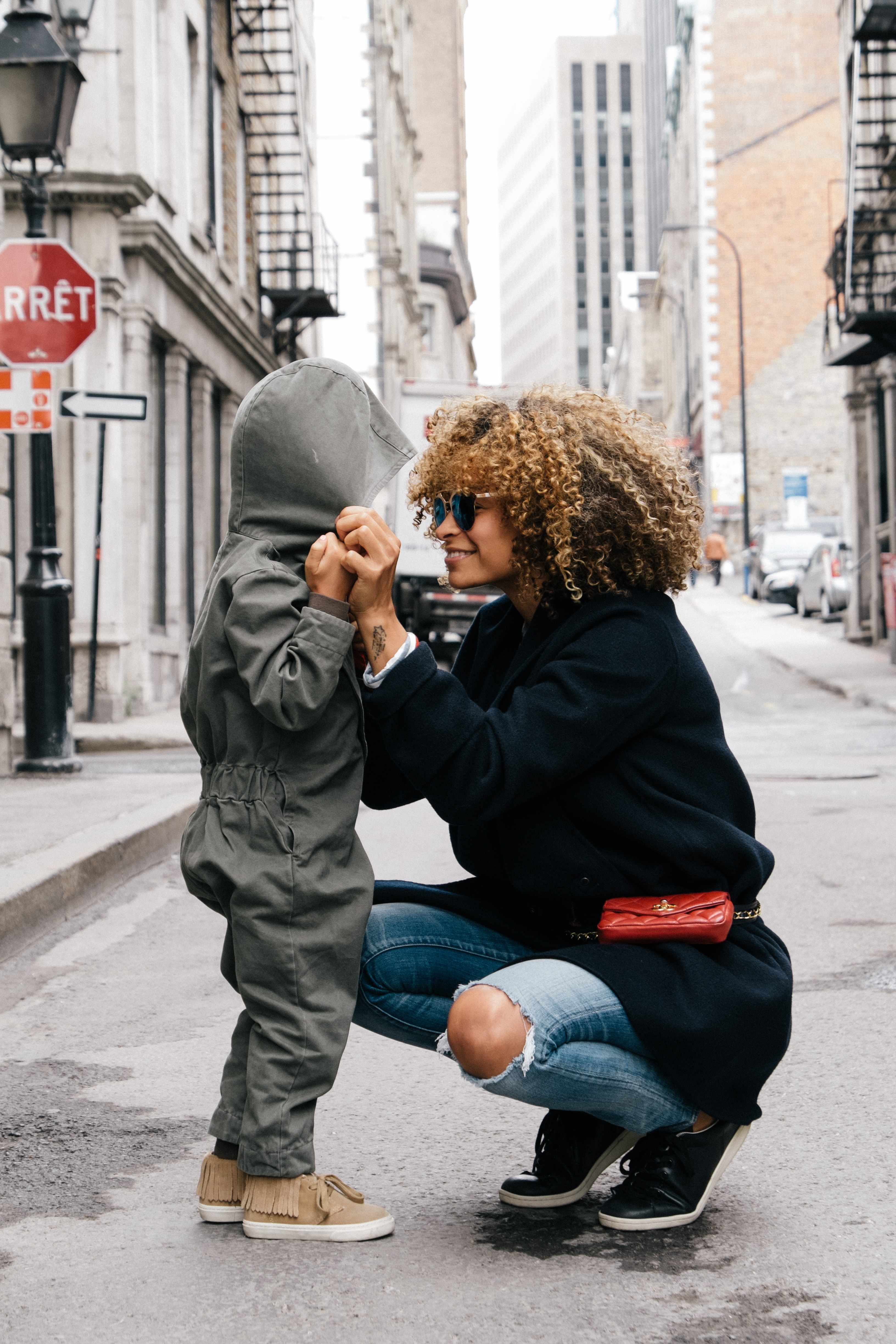 Parents work hard to help their child become aware of what’s socially appropriate and inappropriate, what they’re allowed to do or not allowed to do, what tasks need to be achieved and how their words, reactions and actions affect other people.
Parents work hard to help their child become aware of what’s socially appropriate and inappropriate, what they’re allowed to do or not allowed to do, what tasks need to be achieved and how their words, reactions and actions affect other people.
The more focus we put on modelling the behaviour we want to see in our child, in other words self-discipline, the less time we’ll need to spend dealing with unwanted behaviours from our child.
Even though it can take a bit of work on our part to stop, think and edit what we want to say, how we want to say it and to try to imagine how our words and tone of voice will feel for our child on the receiving end, this IS the big work of parenting. Whether we stop to consider their feelings and needs before we correct them is largely what determines whether the interaction is going to go well or whether we’re entering into a power struggle or an argument. To maintain the positive relationship with our child and to help them maintain a positive relationship with themselves, we need to be very careful to avoid shaming them.
The world doesn’t revolve around you you know!
Parents often exaggerate their disappointment in their child to labour their point in the hope that the child will think more about their parent’s advice and be more considerate. Yet instead of making them think responsibly, we’re likely making them feel pretty awful about themselves. Parents then wonder why their child is so reactive or resistant and further accuses them of not caring about their impact on other family members. It’s so important that we mindfully consider how we communicate feedback, requests, limits or corrections, and how the message causes our child to feel about themselves. A child’s reaction that parent’s judge to be “disrespect” is often an instant expression of their very hurt feelings.
Seek to understand the feelings and unmet needs beneath the behaviour.
If one of my kids reacts to a request (like “can you please bring out the compost”) or a limit (like “it’s time to log off the computer”) with a snappy tone, I try to read it as a possible emotional reaction to how I asked and I might respond with something like;”did you not like how I asked you?” I ask because I genuinely care about how they feel and always prefer to foster willing cooperation and team work for everyone’s benefit. Sometimes this leads to clarifying that they thought I was annoyed with them because of my tone of voice, which I will own and explain if I am in fact feeling annoyed towards them and exlpain using “I feel” statements while avoiding critical blaming language.Or I might explain that there are other reasons why I’m feeling stressed and under pressure and that’s why I sounded annoyed, which usually relieves them of feeling accused or misunderstood. Sometimes when I seek clarity around their reaction, my kid might tell me “no mum it has nothing to do with what you said, I’m just stressed” or “I’ve just had a really big day and I’m feeling frustrated/ exhausted/ stressed”. It’s important for us to remember that a grumpy reaction doesn’t necessarily mean that they have a problem with a request or a limit, it may add to their stress, hence a little empathy can make a big difference in helping them gain the energy to stretch themselves to do what needs to be done.
Giving feedback, corrections and limits as respectfully as possible invites your child to listen,
invites them to care, invites them to consider, invites their higher thinking, invites them to expand their thinking and feelings to also consider the thoughts and feelings of others. Whereas purposely invoking their feelings of guilt or shame, in the hope that this will motivate them to be more responsible and considerate just doesn’t work. In fact it has the opposite effect. Sometimes parents go so far as to say “you should be ashamed of yourself”, perhaps not realizing the extent that they’re shaming their child and the very debilitating effects of shame.Indeed, children do very naturally learn from the emotional responses of their parents.
Children generally love and care very deeply about their parent and are very affected to see their parent’s sadness, annoyance or disappointment in response to their actions. If we are truly sensitive to our child’s feelings, we’ll see that they notice the slightest change in our mood and body language at times when we’re expressing limits, making requests or expressing a boundary. Instead of exaggerating our emotions or lecturing them in the hope of having a greater impact, we actually can have a greater influence if we assume that they can see and care about our sadness, fears, annoyance and disappointment and because they care so much about how we feel and how they affect us (when they’re not themselves upset or overly stressed), they need our reassurance of our unconditional love at these times:“I’m disappointed that you didn’t stick with our agreement, so let’s talk it through and I’m sure we can work something out”,
“I don’t like when you speak to me like that, but I can see that you’re upset and I do also care about what’s going on for you. Tell me more about ….. “
“Please don’t grab the toy from your baby sister. It looks like you don’t like when the baby plays with your new toys do you? Were you disappointed to see it in her hands?”
Our show of care of our child’s feelings and needs can help them stay engaged in the conversation, help them cope with the limit we’re setting, or help them care about our requests.
We make it very difficult for our child to stay engaged with us, to genuinely be considerate of others and to feel willingly drawn to cooperate with us when we express limits or requests with criticism and without showing care of their feelings and needs.
Ironically, giving lectures, threats, punishments, including imposing consequences and reward systems in response to their child’s lack of cooperation tends to result in a child feeling so judged and resentful that their genuine care and consideration of the feelings of their parent and other members of the family become buried. Guilt tripping, moralizing, rejecting with passive aggression (withdrawal of attention), criticizing or threatening to punish a child with a withdrawal of precious items, “privileges” or attention can instill fear based compliance, but can do nothing to motivate children to behave better for all the right reasons.We want our children to be socially responsible, considerate and generous in their contributions because it feels good to them, because it feels right, because they enjoy being part of a system that works well and enjoy the harmony of working together and enjoy the positive feelings that helping others and contributing bring.
The parents who are as mindful and sensitive in their interactions with their children as they are in social situations really do reap the rewards of a much more respectful relationship that’s based on trust and mutual respect.









So how can I deal better with a bipolar teen’s snappiness a s not following through, sometimes swearing, etc. ???
Hi Lorenna, I think you won’t be surprised to hear that it’s just too big a question to answer here in this forum. There’s no quick fix, but so many of the peaceful parenting communication skills are exactly what’s needed with the kids who have a very low stress tolerance, who are highly sensitive and defensive and can become easily reactive or shut down. The eCourse is a great way to really focus on learning and improving the communication skills as well as gaining a lot more insight into what’s happening in your inner world. We can’t control our children’s emotional reactions as much as we can control/ manage/ care for and even heal our own feelings and reactions. When we’re more centred, we have a lot more choice in how we respond to highly charged or stressful situations in the home. We’re then much more able to bring some calm and stability. A teenager will only listen to and respect their parent to the extent that they feel heard and understood and respected. Yet it’s not easy to give that when you’re not receiving much of it. But it’s always up to us parents to be the adult, to step up and model that which we are teaching.
Perhaps read my article “aggression – why children lash out and what to do” for further insights into these concepts.
Useful information. Lucky me I discovered your website accidentally, and I’m surprised why this twist
of fate didn’t came about earlier! I bookmarked it.
Thank you for another wonderful article. I don’t even know how to put into words what I’m experiencing reading your articles and learning more about this approach to child rearing…One thing I’ve noticed is that so much of what you describe as unhelpful parenting approaches were the way I was raised and I had no idea how deep those hurts have affected me. This passage for instance (below) completely resonated with me and it makes me sad for little Caroline…but I realize that having this awareness that is part of how I will be able to develop self-compassion but also the tools for reversing this way of parenting….
“Parents often exaggerate their disappointment in their child to labour their point in the hope that the child will think more about their parent’s advice and be more considerate. Yet instead of making them think responsibly, we’re likely making them feel pretty awful about themselves. Parents then wonder why their child is so reactive or resistant and further accuses them of not caring about their impact on other family members.”
Yes Caroline I hear you, it’s big work changing all our childhood conditioning, and doing so without being hard on ourselves. Because as you say that young self from our childhood lives on in us and needs a lot of the empathy, acknowledgement and support to release that was needed in childhood. I need to develop a notification system for comments. I often don’t see them until I revisit an article. Late responding but thank you Caroline for your comment and I’m sure lots of parents will have read and resonated!
I needed this tonight. This website always helps me stay on track to becoming and staying peaceful. I appreciate all the help. We all need help and guidance 💗